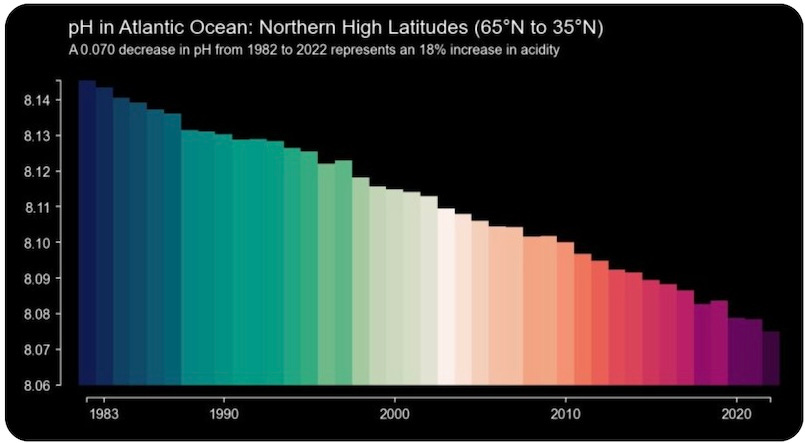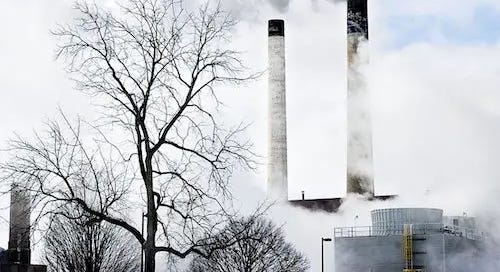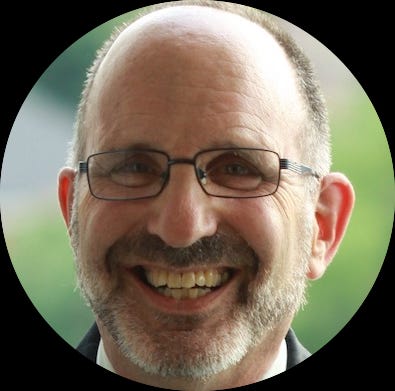How #Elxn2025 Could Be the Climate Breakthrough of the Decade
The lead-up to Canada’s next federal election has not been looking hopeful for climate policy. But we’re seeing some strong hints at how to turn that around.
The 2025 federal election in Canada could still be the climate breakthrough of the decade, the moment of consensus and action we’ve been waiting for. But only if politicians and their handlers realize they can win big by saying the quiet part out loud.
We’re in such a reactive, tightly-scripted moment, where it’s rare to find even a routine statement from a leader or official that isn’t manufactured, sliced, diced, and over-processed to sound like nothing any normal human would ever say. Depending on the topic, the source, and the political moment, a release might be carefully tailored to avoid offending, or to be deliberately provocative and offensive. Neither of these extreme evasions gets us the honest, forthright discussion that every voter—that every citizen—needs and deserves. On the climate emergency, the energy transition, or any of the other issues that are keeping people up at night.
With a federal election due to take place by October 2025, rather than November 2024, Canada is a year behind the United States in the political spin cycle. The U.S. is in an unexpected moment of hope, joy, and purpose that has joyously filtered across the border—last week, it came up in three separate, unrelated conversations in a single day (and I promise, I didn’t start it). But on some of the central issues on the election agenda, both U.S. political parties are trying their best not to talk about what they’ll do if citizens trust them with their votes—with one shining exception that could point to an impending breakthrough in the world’s response to climate change and the energy transition.
Keeping the Quiet Part Quiet
In the aftermath of President Joe Biden’s decision not to seek re-election and Vice President Kamala Harris’ meteoric rise as the Democratic nominee, U.S. climate groups have been electrified (all with renewably-generated power, dontcha know), with many of them endorsing a presidential candidate for the first time ever. That’s in spite of a nominating convention in Chicago last month where the words “climate change” were rarely uttered.
The political calculus is simple. Under the arcane electoral college system the U.S. uses to choose its president, the election every four years comes down to seven or eight swing states, where a few tens of thousands of votes out of millions cast can determine the outcome. In 2016, Donald Trump received 2.87 million fewer votes nation-wide than Democratic nominee Hillary Clinton, but the electoral college process still awarded him the presidency with a margin of less than 80,000 votes across the “Rust Belt” states of Michigan, Wisconsin, and Pennsylvania. (Which of course didn’t stop him from claiming a landslide win.)
Fast forward eight often traumatic years, and Pennsylvania is considered one of the two states that will make or break this year’s campaign. And Pennsylvania is an epicentre of the gas fracking industry, with 220,175 wells either drilled or proposed as of July 2. The industry has also racked up 81,289 regulatory violations since 2008, according to the Fractracker Alliance. It’s still considered an economic and job creation powerhouse in the state, despite mounting evidence to the contrary.
So Harris is playing political dodgeball, after briefly committing in 2019 to ban fracking outright. In her first major media interview since the convention, when CNN news anchor Dana Bash asked her about her change of position, Harris said she’d been consistent since 2020. From the interview transcript:
HARRIS: In 2020 I made very clear where I stand. We are in 2024, and I have not changed that position, nor will I going forward. I kept my word, and I will keep my word.
BASH: What made you change that position at the time?
HARRIS: Well, let’s be clear. My values have not changed. I believe it is very important that we take seriously what we must do to guard against what is a clear crisis in terms of the climate. And to do that, we can do what we have accomplished thus far.
The Inflation Reduction Act, what we have done to invest by my calculation over t— probably a trillion dollars over the next 10 years investing in a clean energy economy. What we’ve already done creating over 300,000 new clean energy jobs. That tells me from my experience as vice president we can do it without banning fracking.
So far, at least, U.S. climate hawks are just fine with that. That’s because “the campaign is not the point,” U.S. journalist Paul Waldman explains for Heatmap.
“There has been an undeniable change in the party’s political calculus at moments like this one, but it needn’t cause those who care about the issue to panic,” Waldman writes. “Every activist would like their issue to be at the top of the political agenda, but especially in our current state of polarization, that usually means a big fight, with high stakes and the chance of both victory and defeat.”
Against that reality, he adds:
Starting a big fight on an issue is only one path to policy change. Another is to place it within a broader agenda, keeping the part of your coalition that cares about it on board and ready to move forward should you win, without generating too much energetic opposition from your opponents. And that’s what climate wound up being at the Democratic convention: not a main course, not even a side dish, but rather an appealing political crouton tossed into a salad full of other policies and priorities.
The Democrats aren’t the only ones trying to keep the quiet part quiet. They’re just doing it better than the Republicans. Trump tried so hard for so long not to declare himself on abortion rights, trying to thread the needle between an anti-choice political base that expects him to go all-in and opponents outraged by the repeal of Roe v. Wade. The bumbling convicted felon and proudly confessed serial sexual predator doesn’t do “subtle”. But until his multiple contortions on the issue landed him in hot water with his core supporters, he, too, was getting a pass for not talking about it.
“The biggest thing we need from him is to win,” Frank Pavone, national director of Priests for Life and a Trump presidential campaign adviser in 2016 and 2020, told The Bulwark about a week ago.
“If he said nothing about abortion from now until Election Day, it wouldn’t bother me simply because we do know where he stands,” he added. “I believe he’s pro-life. He’s proven that. So I don’t need him to give pro-life speeches. It’s my job to articulate pro-life principles and it’s his job to get elected and govern.”
Saying the Quiet Part Out Loud
What a depressing landscape we’re left with if that’s all there is! Politicians who campaign on a wink and a nod, then govern by fiat with most of the population struggling to get by and either opposing them or tuning them out.
Fortunately, there’s more. Much more.
While the Democratic convention was under way, Harris campaign advisor Brian Deese, previously National Economic Advisor to Biden, posted an essay in the prestigious magazine Foreign Affairs that pointed the way to a transformative role for the United States—and possibly, by implication, for Canada—in a new global climate economy. Deese proposed a “Clean Energy Marshall Plan” that would mobilize the U.S. economy to “help others by helping itself” while putting “its own burgeoning industries front and centre in the energy transition.”
The clean energy transition “remains the most important planetary challenge,” Deese declared. “It also presents the greatest economic opportunity: it will be the largest capital formation event in human history.”
So “just as the Marshall Plan assisted those countries most ravaged by World War II, the new Marshall Plan should aim to help countries most vulnerable to the effects of climate change: the United States’ partners in the developing world. Developing countries and emerging markets will need access to cheap capital and technology to transition away from fossil fuels quickly enough to halt global warming,” and a new Marshall Plan would have the U.S. modelling its contribution on its earlier effort to “forge peace” and rebuild cities and economies.
Whether he realized it or not, Deese was channelling earlier work by Seth Klein, team lead at Canada’s Climate Emergency Unit. In A Good War: Mobilizing Canada for the Climate Emergency, Klein chronicled Canada’s industrial mobilization against the existential threat of the Second World War to hammer home his central message: we’ve done it before, and we can do it again.
Now, four years after his book appeared, Klein is out with an urgent rejection of a “rinse-and-repeat cycle that is simply not working” to drive down emissions or speed up the energy transition, in Canada or across most of the world.
“We have run out the clock with distracting debates about incremental changes,” he writes. “And where it matters most—actual GHG reductions—we have accomplished precious little.”
Now here we are, staring down this harrowing gap between what the science says we must urgently do and what our politics seems willing or capable of entertaining. And more foreboding still, facing the likely prospect of a majority Conservative government that, if elected, will throw out virtually the entire package of climate policies enacted to date. Somehow, we have to kick-start something new.
Klein’s prescription for what’s next is to:
• “Move off the wonky policy debates” and “captivate the public with exciting and provocative ideas”;
• Stop settling for incremental solutions that achieve nothing useful and undercut the climate community’s credibility;
• Excite voters with “big ideas that are congruent with the crisis, and that simultaneously speak to people’s deep economic and employment anxieties and the cost of living crisis,” like free heat pumps for all, free transit, and covering part of the cost with wealth and windfall profit taxes;
• Respond to a public that is “looking for meaning”;
• Push back harder against the fossil fuel industries and their enablers in the financial sector and commercial media;
• Get set to engage in the coming federal election.
The Winning Formula: ‘Climate and…’
An essential point in common between these two analyses is that they’re both motivated primarily (Klein) or substantially (Deese) by a concern about the climate emergency, but position climate action as a response to wider issues with broader appeal.
Klein cites “all the other elements of the polycrisis upon which the populist right feeds—the housing crisis, the poison drug epidemic, inequality.”
Deese’s new Marshall Plan, just like its predecessor, comes with a broader geopolitical agenda to mobilize “soft power” against competing economic influence (then: Soviet Russia, now: China), but still carries an element of doing well by doing good. Of deploying one country’s economy and infrastructure to help out elsewhere, and pitching the domestic benefits to the voters who are picking up the tab.
Canada doesn’t have the economic heft to mount a Marshall Plan. But we like to think of ourselves as a force for good in the world, and there was a time not too long ago when we contributed much more substantially to international aid and peacekeeping. Whether the winning formula we need is limited to the homegrown economic transition that Klein lays out in A Good War or seeks a share of the global opportunity that Deese foresees, there’s something in this future for everyone. Unless Canada’s next federal government burns it all to the ground.
And that’s the biggest hurdle we face. To state the blindingly obvious, none of Canada’s federal parties are anywhere near embracing this kind of optimistic, lead-from-the-front vision. To get there, at least one of them would need a leadership replacement. And at least one of the current national party leaders would need a personality replacement.
That’s all the more reason for the wider climate community, from advocacy groups and policy shops to clean energy developers and green businesses, to seize on this next year and the election itself as the education and mobilization opportunity of the decade. We know what it’ll take to win on climate. And it’s up to all of us, same as it ever was, to make it happen.
Coming Soon: The Agenda
In the lead-up to the election, The Weekender and The Energy Mix will be digging into the specific policy planks and messages that will deliver the wins we need over the next year and beyond. Use the chat to share your ideas, or contact us directly to let us know what you’re thinking.
Mitchell Beer traces his background in renewable energy and energy efficiency back to 1977, in climate change to 1997. Now he and the rest of the Energy Mix team scan 1,200 news headlines a week to pull together The Energy Mix, The Energy Mix Weekender, and our weekly feature digests, Cities & Communities and Heat & Power.
Chart of the Week

Climate Change Made High Temperatures Twice as Likely Before Jasper Wildfire
Ontario Opens Door to New Gas Plants with ‘Energy Agnostic’ Power Procurement
No Price Break for Smaller Cars as Ottawa Sets 100% Tariff on Chinese EVs
Pricing Pollution the ‘Key Ingredient’ in Successful Climate Action, Global Study Finds
Harris Mostly Mum On Climate, But Key Advisor Pitches ‘Clean Energy Marshall Plan’
BC Hydro Begins Filling Site C Dam Reservoir
495-MW Buffalo Plains Wind Farm, Canada’s Biggest, Delivers First Power to Alberta Grid
‘Where There Was Road, There’s Water’: Quebec Author Loses Beloved Landscapes to Hurricane Flooding
Used EV Market Hits Turning Point with Price Plunge
Chevron-Backed Carbon Capture Firm Gets Up To $100 Million from Canada (Bloomberg)
U.S. leads wealthy countries spending billions of public money on unproven ‘climate solutions’ (The Guardian)
Bangladesh floods leave 23 dead, 5.7 million people affected (Reuters)
Yukon Quest to follow new route this winter because of climate change, race organizers say (Canadian Broadcasting Corporation)
Thawing Alaskan permafrost is unleashing more mercury, confirming scientists' worst fears (Grist)
The energy transition: Where are we, really? (McKinsey & Company)
Top South Korea court says climate law doesn't protect basic rights (Reuters)
Big Oil Is the Big Winner on Carbon Credit Expansion (Bloomberg)
Changing how we incentivize corporate net-zero action (Corporate Knights)
China Dampens Green Hopes of an Early Peak in Carbon Emissions (Bloomberg)
Washington solar project paused amid concern about Indigenous sites (Grist)
Floating islands are cleaning polluted harbours (Seeing Like a Local)







